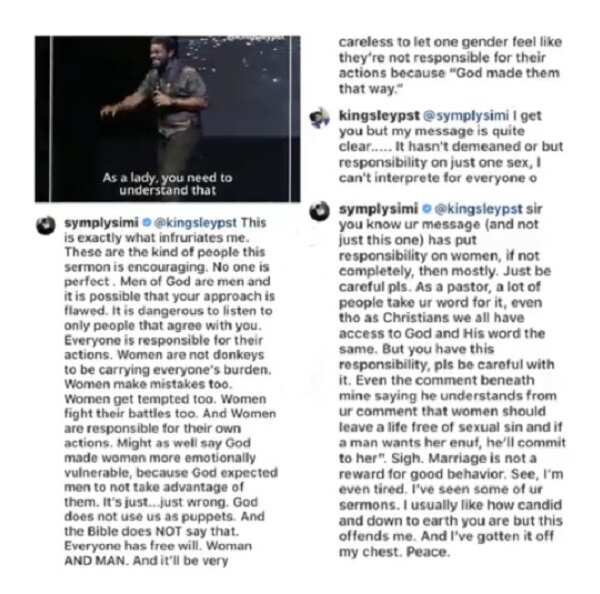There have been mixed reactions on social media following the sermon of a Nigerian pastor identified as Kingsley Okonkwo about intimacy between men and woman and how God wants things to be. Nigerian singer, Simi, was not pleased with his view and has since weighed in on the issue.
When it comes to sex and relationships, a lot of people in today's society appear to be fighting what is considered the norm which is; men want sex and women, marriage. However, this Nigerian pastor set many people off with his recent preaching about the issue.
In the now viral video, he is heard preaching to an all-female congregation about men and the psychology behind their behaviour. According to the pastor, God put a lot of sexual passion in men expecting women to obey God's command by denying men of these pleasures until marriage. That way, both parties end up getting what they want; sex for the man and marriage for the woman.
READ ALSO: Personal letter from the Editor-in-Chief of Legit.ng (former NAIJ.com)
He also said that women need to understand that men are not as emotionally developed as they (women) are.
Watch video below:
PAY ATTENTION: Get the Latest Nigerian News on Legit.ng News App
The sermon which has since gone viral, went down like a lead balloon with newly wed Nigerian singer, Simi who took to the comment section of the preacher's Instagram page to get a few things off her chest.
According to the singer, his preaching excuses the bad behaviour of men while putting a lot of responsibility on women which in her opinion, is not fair. She went on to advise the pastor to be careful with the things he puts out as he has a lot of people following his preaching.
See her comment below:

Screenshot of her comment/@kinglsleypst
Source: Instagram
PAY ATTENTION: Get the hottest gist on Africa Love Aid
See other reactions below:
Meanwhile, a Nigerian writer has left people thinking deeply about the issue of feminism in Africa and the effects patriarchy has had on the relationship between mothers and their daughters.
According to the lady identified as Ijeoma Awuaku Umebinyuo, a lot of feminists are part of the movement because they do not want to end up like their mothers. However, most of these feminists often forget the fight mothers put up, which led to the movement.
HELLO! NAIJ.com (naija.ng) upgrades to Legit.ng We keep evolving to serve our readers better
Source: Legit.ng
from Nigeria News today & Breaking Naija news ▷ Read on Legit.ng 24/7 https://ift.tt/2ugDFne
via EDUPEDIA24/7
Comments
Post a Comment